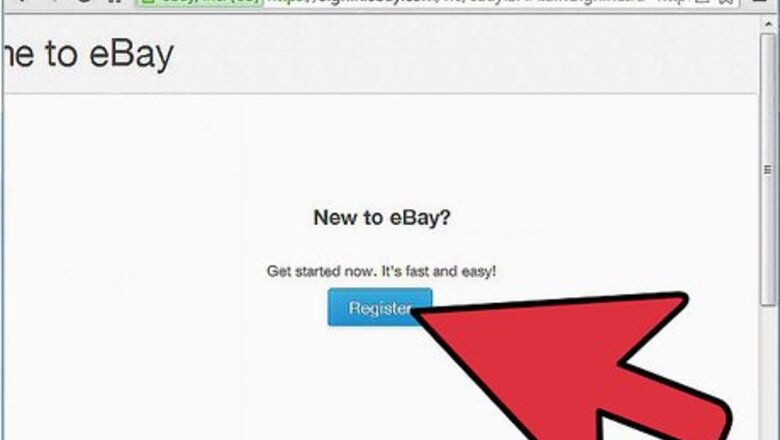
views
Finding the Right Item
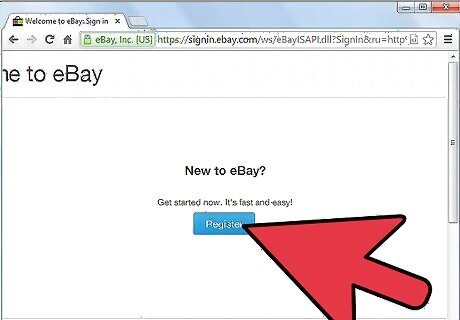
Register for an eBay account. You’ll need an account to bid on items and track your purchases. Creating an account is free, and only requires a name and email address. In order to buy, you’ll need to enter contact information.
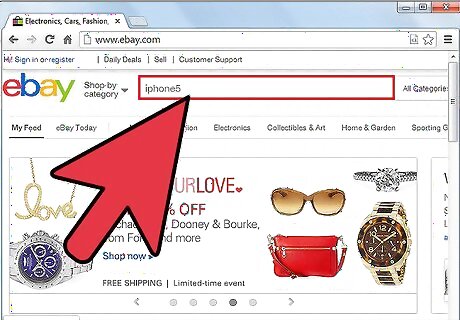
Find an item that interests you. Search for the item or type of item you are looking for in the Search bar. If there are a lot of returns, try refining your search using the Advanced Search tool. If you don’t know exactly what kind of item you want, you can browse eBay listings by category to see all of the items listed.
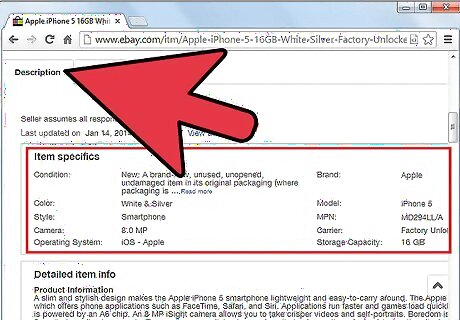
Learn all you can about the listing. When you find the item that interests you, read the listing completely. Does it tell you everything that you need to know? Is it clear, detailed, and easy to understand? Does the listing tell you if the item is new or used? If these things are not clear, or you have questions, e-mail the seller and ask for clarification. What the seller tells you becomes part of the sale deal and provides a reason for return if the seller misleads you. It is better to be aware of everything than to throw away money in the hope the item will live up to your expectations.
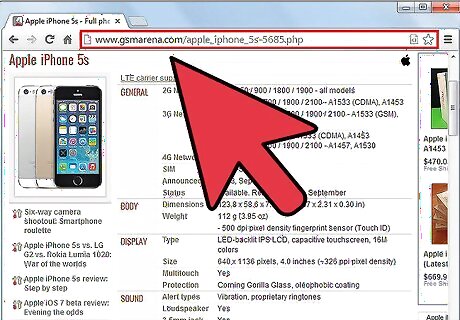
Research the item through other sources. Check product listings and other web sources to ensure that what is described in the eBay listing is what you are looking for. Many products have similar models with different features, so it pays to be well-informed about the product you are looking at.
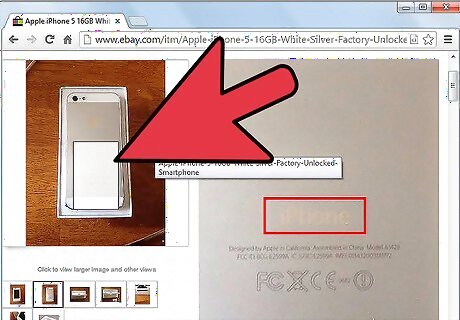
Use the photos. If photos are provided, look closely at them. Are there any features that stand out? If you can enlarge the photos, do so. There is also no harm in e-mailing the seller for extra photos if desired, along with any questions you have about the images. Pay extra attention to the condition of the item in the photos. Are they only showing the picture of the box? You should be able to see the condition of the item in detail.
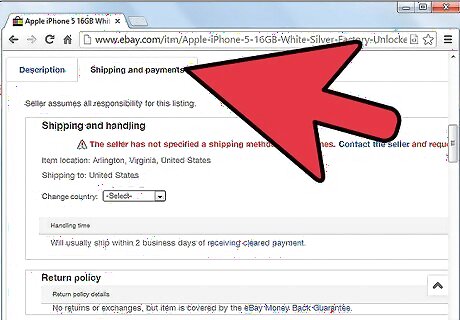
Check for shipping and handling prices. This is a trap for many buyers. The item seems like a great price -- until the shipping and handling costs are factored in. If they are not displayed, e-mail for the costs to your part of the world. Also be aware that some sellers will not ship to some locations.
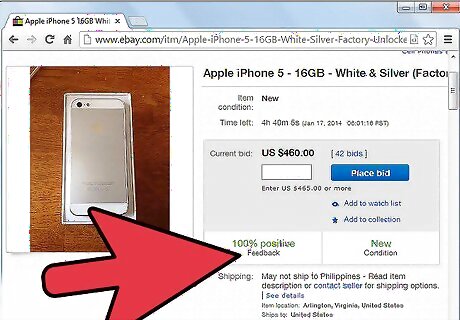
Check the seller's feedback. Overall feedback and comments are a good reflection of the seller's good faith, successful previous sales and even speed of shipping. Anything above 95% is usually an indication that the seller is good - some negative feedback is to be expected in the world of sales and may simply be a reflection of a difficult customer or someone who had expectations that were unrealistic. Check how many transactions the seller has performed. While it may not be wrong to do business with someone with only a few transactions (they may be new!), you are more likely to receive good service from sellers that have performed a large number of sales. A seller with a lot of sales will usually process your order faster and work to ensure that you are satisfied.
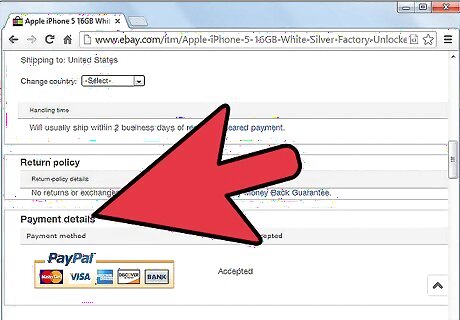
Check payment methods. PayPal is one of the most common payment methods on eBay, as payments can be processed immediately. If you don’t have a PayPal account, it is recommended that you set one up before you begin bidding to make the process smoother. Don’t purchase from sellers who only accept cash. Avoid these sellers.
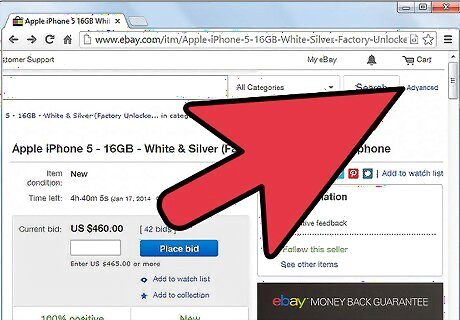
Do a "Completed Listings" search of the particular item. This will give you the average prices paid for the item in the past which lets you make a comparison and gives you a notion whether the "Buy It Now" price or the auction listing prices are fair or not. If you are bidding, as opposed to buying immediately, it gives you an indication of how much you should be willing to bid. You can perform a Completed Listings search by clicking the "Advanced" link next to the search bar. Check the "Completed listings" box in the "Search including" section. Enter in your search keywords and then click the Search button. Listings in red will be completed listings.
Bidding on the Item
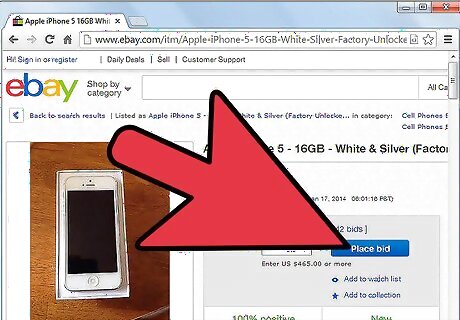
Decide if you want to buy immediately. The “Buy it Now” option allows you to purchase the item for a set price instead of having to go through the bidding process. For rarer items, using the “Buy it Now” option may actually save you money if a bidding war starts. Be sure to check the average price for the item you are purchasing. If you use the “Buy it Now” option, you may end up paying more than it’s worth.
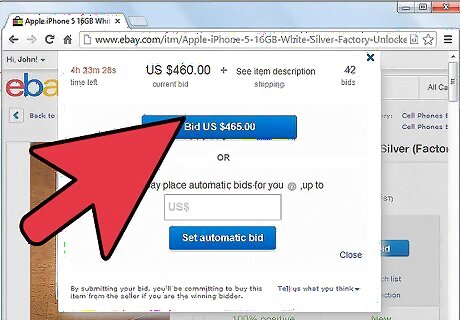
Put the highest amount you want to pay if bidding. Your bid will automatically increase by the minimum bidding interval until you reach the maximum amount you entered. This will allow you to set a maximum that you’re comfortable with without having to constantly monitor the auction. Placing any bid binds you to the auction. By placing the bid, you are agreeing to pay the amount that the auction closes at. You cannot retract bids, so be sure that you are sure that you want the item. Bids can only be retracted if there was an error in entering a bid to begin with, not if you change your mind on an item.
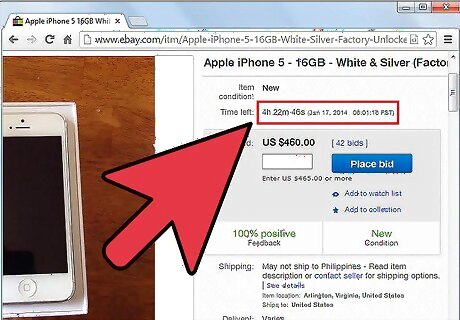
Increase your bid during the auction. As the auction progresses, you will be notified if your maximum amount has been outbid. If you can and want to, you can increase the amount of your bid by returning to the listing and entering in a new amount.
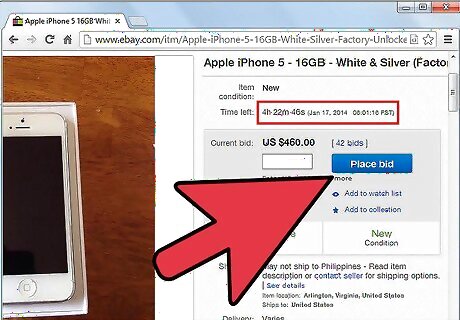
Wait for the auction to end. If you win the item, you will be notified. Once the auction ends, you are obligated to get in touch with the seller and work out payment and shipping details.
Completing the Transaction
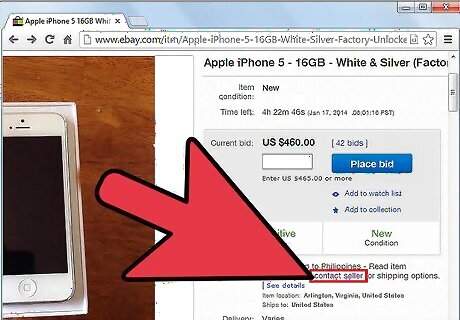
Contact the seller. Once the auction is complete and you have declared the winner, you and the seller need to get in touch. This communication will allow you to choose your payment method and confirm your shipping address and the shipping and handling fees. The seller will ship the item once they receive confirmation that payment has been made.
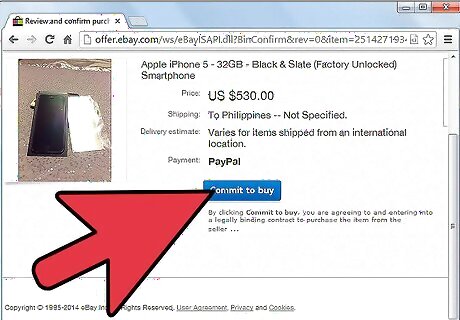
Pay as soon as possible. If the seller does not receive payment within two days of the auction ending, they can open a case against you through eBay. You can avoid this by quickly paying for your item as soon as the auction is completed. Paying quickly will often result in the seller leaving good feedback for you, which will make future sellers more likely to quickly work with you.
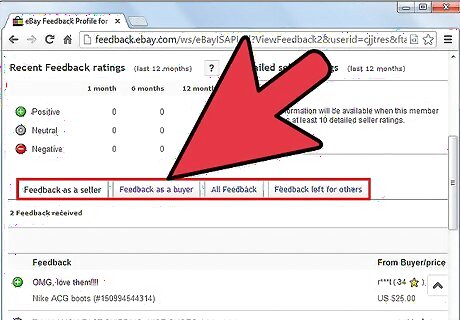
Leave feedback. The entire eBay system revolves around buyers and sellers leaving feedback for each other after the completion of a transaction. Leaving feedback for sellers after a transaction is considered good etiquette. Use the feedback to let other buyers know if the seller is reliable. Feedback options include: Positive: You are satisfied with the transaction and would likely buy from that seller again. Neutral: You may have some issues with the sale process but not enough to leave a negative. Negative: Something about the sale disappointed or upset you. Before leaving negative feedback, always try to contact the seller and seek resolution. Most sellers will try to remedy any errors that they have caused because they value their feedback status. Many now offer refunds and in some cases, you may be able to reach a compromise that makes both sides happy. If you cannot reach a resolution, eBay can also intervene for you. After trying a reasonable amount to resolve the issue and you still have no happy outcome, leave a factual message as to why you found the transaction to be negative. Avoid abuse or inflammatory statements; these reflect badly on you and may cause future sellers to block you.
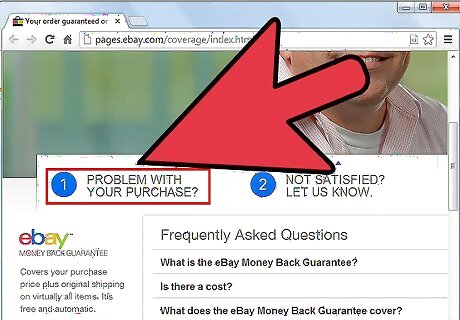
Contact eBay with any issues. If you have troubles with receiving the item from the seller, receiving an item in a different condition than was advertised, or have any other issues, contact the eBay Resolution Center. You can use this online tool to file a complaint, and potentially receive a refund from eBay for the purchase you made. Always try to resolve your issue with the seller directly before using the Resolution Center. Most good sellers will attempt to make things right without having to escalate to eBay customer service.

















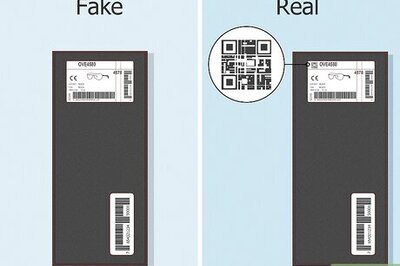
Comments
0 comment